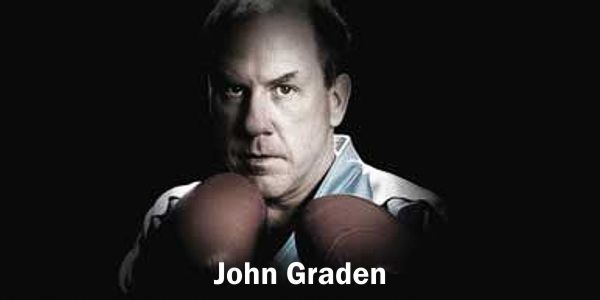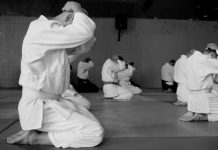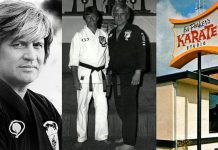If someone says, “they are practicing religiously,” what does that mean to you? Does it mean they never miss a martial arts workout? Or, does it mean martial arts is their religion? As I discovered through the years, the answer to that question depends on whom you ask.
Before I tell you these stories, let me say I see nothing wrong with an instructor acknowledging or referencing his or her religious beliefs in class. This is not about that.
Over 20-years ago, the local newspaper did an article on my brother Jim, and myself. In the article I mentioned something to the effect that forms training were more than just exercise, they are like a moving meditation. The following week I received a phone call at the school from a woman who had read the article. She told me that her son had trained in Texas with a prominent instructor whom I will not name here. As a brown belt, her son was in a bad car wreck. He had serious damage to his head and neck. Part of the damage seriously effected his equilibrium. He could no longer walk straight. Though the doctors said he shouldn’t do any activities, she told me that her son’s instructor would come by the house to help him regain some balance and mobility. As I listened to this story, I thought this was going to be another martial arts success story of how martial arts restored his equilibrium and so on. Boy was I wrong.
She told me then that she had read the article in the paper and now understood the source of the mind-power the instructor had over her son. It was clear to her now that the martial arts instructor had her son brainwashed to disobey doctor’s orders. She then proceeded to tear into me and the arts for being involved in eastern, anti-Christian activities.
Two-years later I began teaching an accredited karate course at a local Junior College. Over and over again the head of the physical education department emphasized to me that I must not get into any meditation, spiritual aspects, or eastern religion in the class. I was surprised at how often he brought this up and how adamant he was about it. I taught a very physical class that had nothing to do with eastern anything. Still, he implied that his warnings were, “coming from the top.”
The class was sold-out every semester for the four years I taught it. I was told that I brought more television and newspaper coverage to the sports program than any other program, including their basketball team, in the school’s history.
Incredibly, I was fired. Why? The Students for Christ petitioned the school successfully to have my class, yoga, and eastern humanities removed as our eastern roots meant we were anti-Christian. Keep in mind that this was in 1985 right at the beginning of the mid-80s Moral Majority, Pat Robertson, Meese Commission push towards a return to the America of the 50s. Though I was upset and frustrated, I turned a negative into a positive and opened my school, which went on to, do very well and here I am.
Still, though that was 20-years ago, these perceptions of the martial arts as an anti-Christian activity still exist. Recently, I picked up a book called Larson’s New Book of Cults. Larson is a radio host, and author of 18 books, videos, and is a regular on the talk show circuit. His specialty seems to be detailing how cults, New Age thinking, and other phenomena deviate from the “Christian truth” as he describes it.
In this book, between the chapters on Charles Manson and Mind Sciences, Larson has a chapter on the martial arts. While most of the chapter traces the roots and histories of the various arts, there are a number of warnings to the reader about how the religious underpinnings of martial arts are contrary to the Christian doctrine. Larson says that, “As martial arts spread beyond the monastery to the fields of war, some of the religious flavor was lost. But the essential belief system behind these disciplines has never been completely abandoned, even today.”
Interestingly, Larson cites that, “Traditional Eastern senseis will possibly present the arts as a religion with meditation techniques and idolatrous trappings. Western instructors will more likely emphasize the initial sport stages and appear to a more casual fascination with the arts as a fad.”
Larson’s biggest concern seems to be that, “Whether the form of martial arts is based on the Zen or Taoist philosophy of naturalism or the doctrine of illusion found in Buddhism, the philosophical basis of both explicitly deny the blood atonement of Christ. The Christian practitioner of the martial arts must ask himself whether or not any involvement in such physical disciplines implies an inherent approval of the religious principles behind them.”
The reason I bring this up is not to say he is right or wrong. My goal is to illustrate how, through my own experiences and research, martial arts is still considered a religious activity by many. Is it to you? I’d like to know what our readers think on this subject. I’m interested in knowing if you’ve encountered similar concerns in your community. How do you deal with the dichotomous nature of eastern and western philosophy? While many schools easily accept meditation as part of class, how would these same schools feel about replacing meditation with prayer? Again, I’m not saying either way is right or wrong, I’m curious about the subject of martial arts and religion and would like to know what your thoughts are on it.






